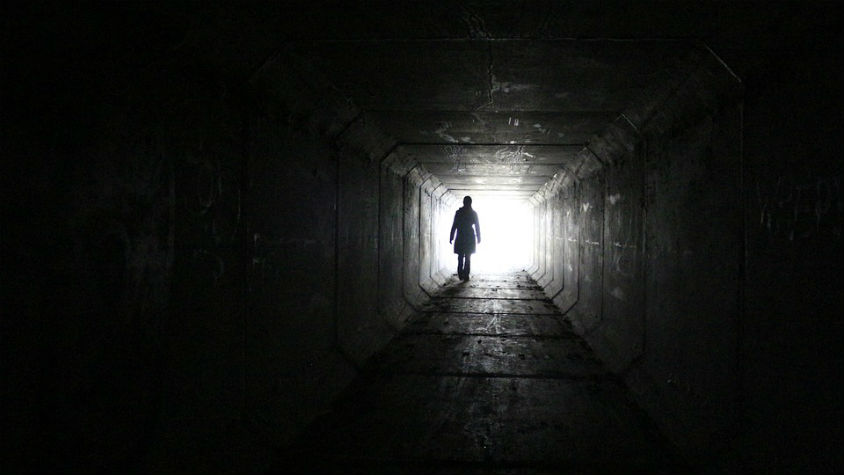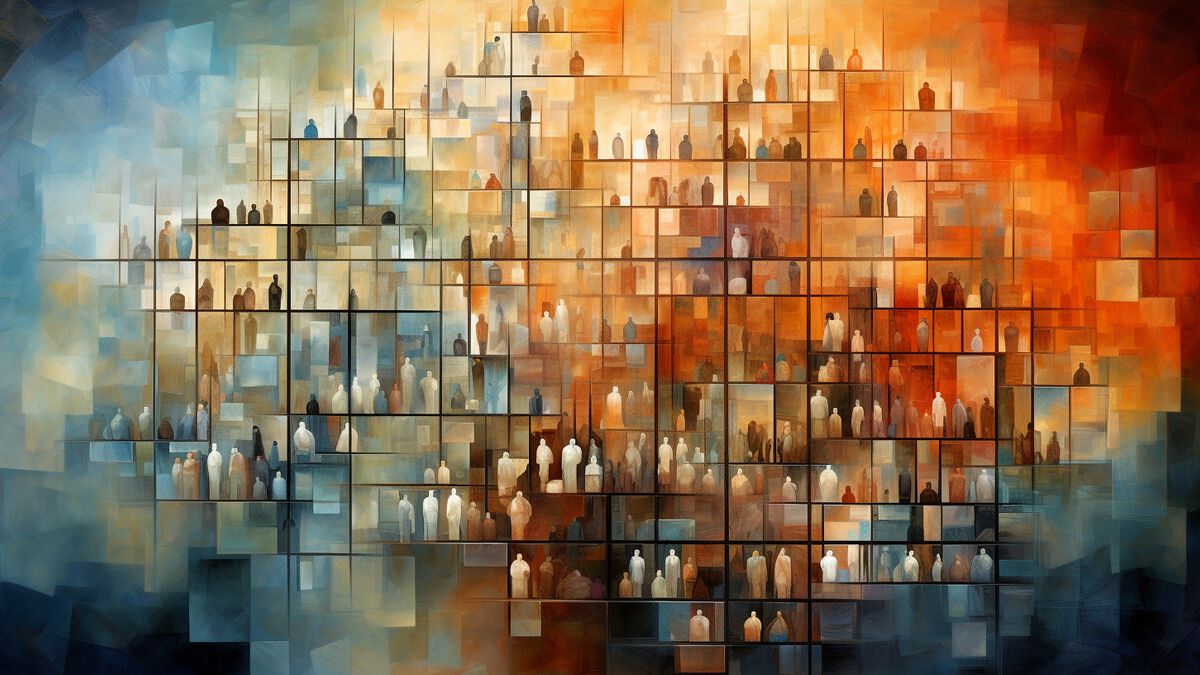Perspective on the Benevolence Argument
27 April 2010 (updated 7 March 2022)

On the Mormon Transhumanist Association Response blog, Vblogger has commented on the New God Argument. Below are my thoughts in response to those comments.
The question of whether the New God Argument is beneficial, perhaps complementing other reasons for persons’ faith in God, is one that I can answer with confidence. While presenting the New God Argument to large and small audiences, in auditoriums and homes and on the Internet, Joseph West and I have received much feedback. And that feedback has been overwhelmingly positive.
For some, it has strengthened faith. For others, it has established grounds for constructive communication where nothing else had worked. Consequently, we’ve continued to work on improving the presentation of the argument. It’s rewarding to affect others in such ways.
The logic of the New God Argument is valid. But its premises are controversial. This is an important distinction to make.
If we accept the premises, the conclusions follow by formal deduction. Rightly, Vblogger expressed concerns with one of the argument’s premises. In particular, his concern was with a premise for the Benevolence Argument, rather than the logic of the overall argument.
It’s highly important to a proper understanding of the argument to recognize that the Benevolence Argument does NOT hold that everyone must increase in benevolence. Rather, the argument holds that, on the whole and among the empowered, we must increase in benevolence. Or we will destroy ourselves.
As far as I can tell, this aligns well with Vblogger’s perspective that God (the empowered) would ensure proper use of power. As the argument goes, God would not have attained such power had they not increased in benevolence sufficient to use such power without destroying themselves.
While modern humans certainly are not all as benevolent as we would like, we are more benevolent than our ancestors. Again, this is on the whole and among the empowered. And it’s not necessarily on the individual level. For evidence of this, I recommend a TED Talk from sociologist Steven Pinker, entitled the Myth of Violence.
That aside, all is not well in Zion, as the scripture goes. Vblogger points out some serious ethical shortcomings. And each is symptomatic of characteristics that, if far more greatly empowered, would destroy our civilization.
In accordance with Vblogger’s expectation, the change from our present degree of benevolence to something far better may happen in a disruptive and dramatic fashion. For example, some transhumanists expect a technological singularity. If that happens, we probably will not survive any singularity unless we use the rapidly increasing technological capacity, and its convergence with biological understanding, to assist us in enhancing our benevolence.
On the other hand, some Mormon leaders actually have described the advent of the Millennium in ways that sound quite evolutionary. Take, for example, this quote from Brigham Young:
“Will the Saints arise from the dead? Yes. Who will know it? But a few. When the resurrection commences, I say but few will know it. … Will the Saints rise from the dead before the world is converted? Yes. You may despair of ever seeing all creation converted to the Lord Jesus, or to the faith of the holy Gospel. Will you see the resurrection? Yes: you will be in it, and enjoy it; you will be in the first resurrection. Will the world believe it, and know of it? They will not.
“Zion will be redeemed, the great Temple of the Lord will be built, whereupon the glory of the Lord will rest, and a cloud by day, and a pillar of fire by night; the Saints will be gathering from all nations, and will walk into the Temples of God, to do the work of redemption for their dead, and saviours will be upon Mount Zion to save the house of Esau. But will the nations know of it? They will not. And when the Lord reigns King of nations as he does King of Saints, the inhabitants of the earth will not distrust but that it is the power of some great one, that it is the plans of wise men brought into action.
“Thus they will be governed and controlled, and overruled, and led by the principles of the holy Priesthood, and they will never mistrust but that it is the doings of wise men at the head of a powerful nation, schooled in governmental affairs, who know how to control their own nation, and then bring into subjection their neighboring nations, until the whole earth has become subject to them. They will not know that it is the Savior who is ruling King of nations as He does King of Saints. A great portion of the inhabitants of the earth will never mistrust but that it is the effects of the wisdom of men.
“The Saints will be instructed how to build up Zion, how to build temples, and do the work of redemption for their dead; and the wicked nations will know nothing about it. When the Millennium is ushered in, no man or woman will know anything about it, only by the power of God. He will rule and reign, and His glory shall be in Zion, and the wicked will not know it is the hand of our God. The Saints will enjoy the light of His countenance, walk therein, and dwell in His presence.” (Brigham Young Addresses, Volume 2, Page 127)
In any case, whether our change to greater benevolence happens quickly or slowly, I agree with Vblogger that it needs to happen. And our future depends on such a change. Moreover, that’s precisely the substance of the Benevolence Argument portion of the New God Argument.
How will we improve in benevolence? Will we learn and change voluntarily? Will God intervene to impose increased benevolence? I don’t know.
But does it make a practical difference to believe one way or the other? On the one hand, if I believe God will do all the work, I’m less likely to do anything to help. And I may even cheer on approaching apocalypse as a sign of God’s coming intervention.
On the other hand, if I believe God has provided an opportunity for us to do the work ourselves, I’m more likely to participate in trying to make the world a better place. That’s what I choose to believe. I think it could make a difference. My actions reflect that.
If you like these thoughts, you might also like “Consolation for Jesus and Emotion with Science and Technology.”

